Caution: If a window is cracked but still intact, crisscross the window with
masking tape in order to reduce the risk of damage or personal injury.
Important: Before cutting out a stationary window, apply a double layer of masking
tape around the perimeter of the painted surfaces and inner trim.
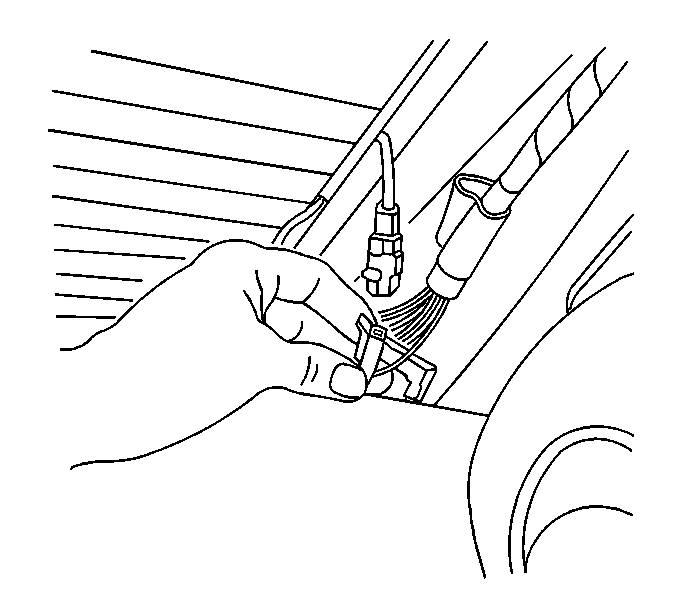
- Disconnect the rear window
defogger electrical connectors.
- Disconnect the OnStar® connector, if equipped.
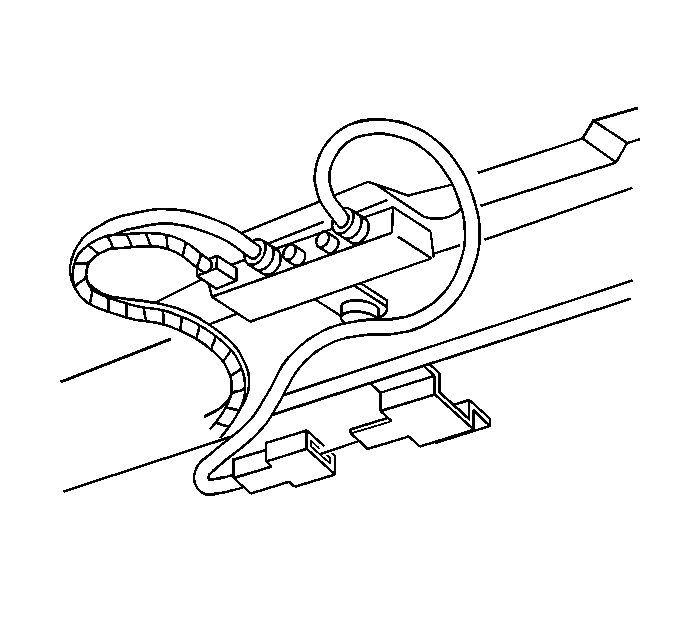
- Disconnect the rear window
radio antenna connector.
Caution: If broken glass falls into the defroster outlets, it can be blown into
the passenger compartment and cause personal injury.
- Cover to protect the following parts from broken glass:
| • | Defroster outlets and A/C outlets. |
- Open the rear compartment lid in order to access the reveal molding.
Caution: When working with any type of glass or sheet metal with exposed or rough
edges, wear approved safety glasses and gloves in order to reduce
the chance of personal injury.
Important: The rear window reveal molding is a one piece molding and fills the
cavities between the body and window.
- If the rear window reveal molding (1) is stretched or damaged it can
not be reused.
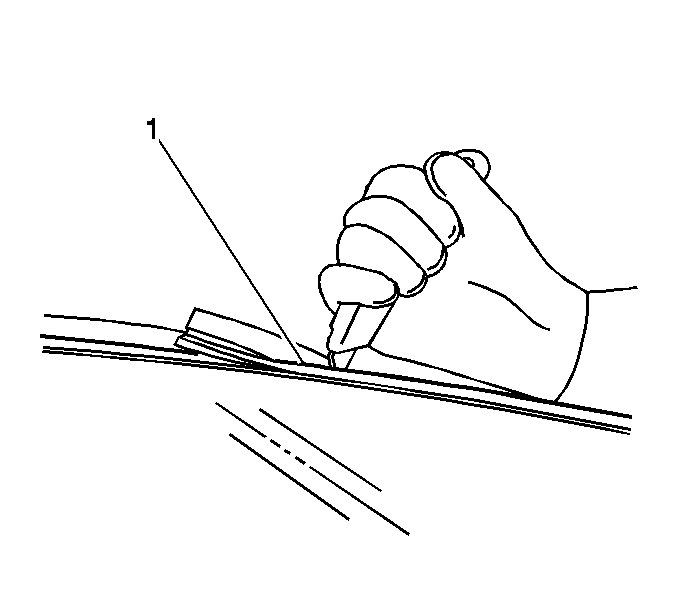
- Remove the rear window
reveal molding (1). Refer to
Rear Window Reveal Molding Replacement
.
Grasp the lower corner of the
window reveal molding by hand and slowly pull the reveal molding away from
the window.
If the rear window reveal molding will not release,
use a utility knife in order to cut around the rear window in order to remove
the window reveal molding.
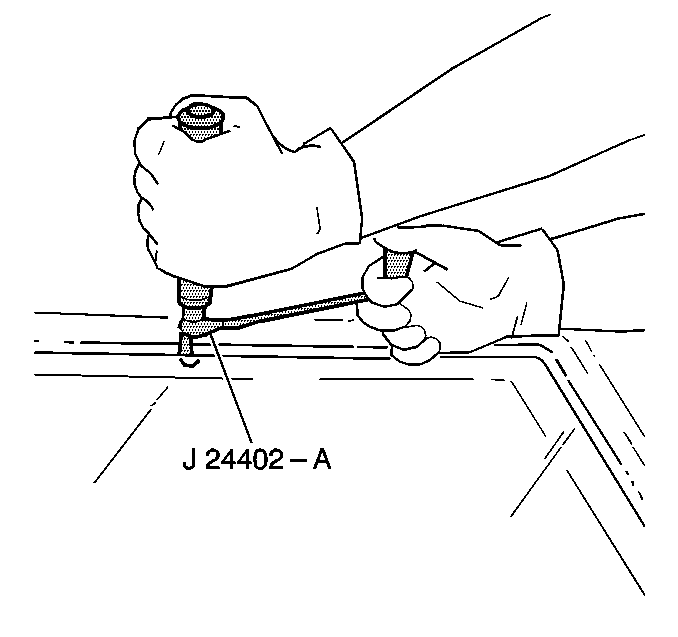
Important: Keep the cutting edge of the tool against the window.
- This will allow the urethane adhesive to be separated from the window.
| • | Leave a base of urethane on the pinch-weld flange. |
| • | The only suitable lubrication is clear water. |
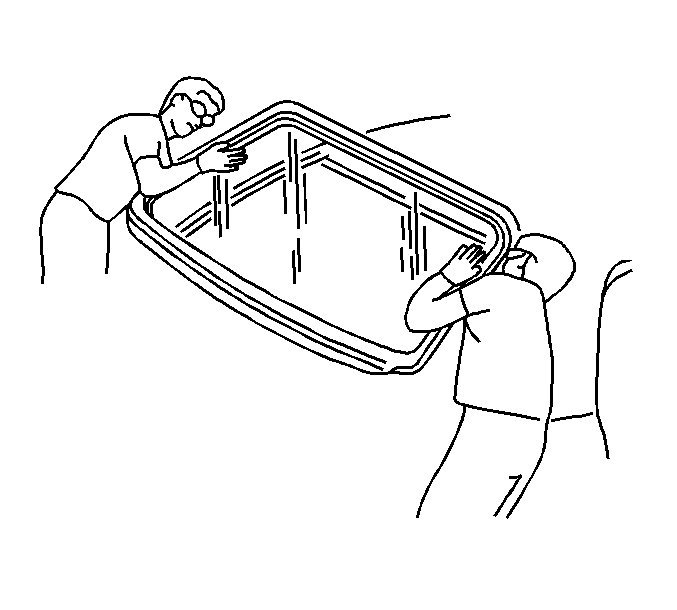
- With the aid of an assistant,
use the suction cups in order to lift the rear window from the opening.







